



Patrick was born at Bannae Taburniae in the Kingdom of Gwent.
Patrick’s parents were Calphurnius, and Conchessa. The former belonged to a Roman family of high rank and held the office of decurio in Gaul or Britain. Conchessa was a near relative of the great patron of Gaul, St. Martin of Tours. Kilpatrick still retains many memorials of Saint Patrick, and frequent pilgrimages continued far into the Middle Ages to perpetuate there the fame of his sanctity and miracles.
May the good saints protect you
And bless you today
And may troubles ignore you
Each step of the way
In his sixteenth year, Patrick was carried off into captivity by Irish bandits and was sold as a slave to a chieftain , Milchu in Dalriada, a territory of the present county of Antrim in Ireland, where for six years he tended his master's flocks in the valley of the Braid and on the slopes of Slemish, near the modern town of Ballymena. He relates in his "Confessio" that during his captivity while tending the flocks he prayed many times in the day: "the love of God", he added,
‘and His fear increased in me more and more, and the faith grew in me, and the spirit was roused, so that, in a single day, I have said as many as a hundred prayers, and in the night nearly the same, so that whilst in the woods and on the mountain, even before the dawn, I was roused to prayer and felt no hurt from it, whether there was snow or ice or rain; nor was there any slothfulness in me, such as I see now, because the spirit was then fervent within me. (from the Confessions)
In the pathway of God, the six years of Patrick's captivity became a remote preparation for his future life. He learned to speak Irish which later helped him to preach His master Milchu was a Druid, and he learned all about Druidism, information which later helped him preach the Gospel.
He escapes, told by an angel to do so and relates in his "Confessions" that he had to travel about 200 miles; He found a ship ready to set sail back to Wales but was taken captive again, but let go, when Patrick called upon God to save their lives and he did. In a few days he with his family at Gwent, but now his heart was set on devoting himself to the service of God as a priest.. First he went to St. Martin's monastery at Tours.. Next he went to St. Germain atAuxerre put himself under his guidance. Germain looked kindly on the young man and a few years later he became a Catholic priest. When Germain was commissioned by the Holy See to visit Britain to stop the heretical teachings of Pelagius, he chose Patrick to be one of his missionary companions and so Patrick was associated with the representative of Rome in the triumphs that occurred over heresy, and in the many remarkable events of the expedition, such as the miraculous calming of the tempest at sea, the visit to the relics at St. Alban's shrine, and the Alleluia victory. Amid all these scenes, however, Patrick's thoughts turned towards Ireland, and from time to time he was favoured with visions of the children from Focluth, by the Western sea, who cried to him: "O holy boy, come back to Erin, and walk once more amongst us."
Pope St. Celestine I, trusted St. Patrick to convert the Irish race into the one fold of Christ. Palladius had already received that commission, but terrified by the fierce opposition of a Wicklow chieftain had abandoned the sacred enterprise. It was St. Germain, Bishop of Auxerre, who commended Patrick to the pope. The writer of St. Germain's Life in the ninth century, Heric of Auxerre, thus attests this important fact: "Since the glory of the father shines in the training of the children, of the many sons in Christ whom St. Germain is believed to have had as disciples in religion, let it suffice to make mention here, very briefly, of one most famous, Patrick, the special Apostle of the Irish nation, as the record of his work proves. Subject to that most holy discipleship for 18 years, he drank in no little knowledge in Holy Scripture from the stream of so great a well-spring. Germain sent him, accompanied by Segetius, his priest, to Celestine, Pope of Rome, approved of by whose judgement, supported by whose authority, and strengthened by whose blessing, he went on his way to Ireland." It was only shortly before his death that Celestine gave this mission to Ireland's apostle and on that occasion bestowed on him many relics and other spiritual gifts, and gave him the name "Patercius" or "Patritius", not as an honorary title, but as a foreshadowing of the fruitfulness and merit of his apostolate whereby he became pater civium (the father of his people). Patrick on his return journey from Rome received at Ivrea the tidings of the death of Palladius, and turning aside to the neighboring city of Turin received episcopal consecration at the hands of its great bishop, St. Maximus, and thence hastened on to Auxerre to make under the guidance of St. Germain due preparations for the Irish mission.
It was probably in the summer months of the year 433, that Patrick and his companions landed at the mouth of the Vantry River close by Wicklow Head. The Druids were at once in arms against him. But Patrick was not disheartened. The intrepid missionary resolved to search out a more friendly territory in which to enter on his mission. The fame of Patrick's marvelous power of miracles preceeded him. Milchu, in a fit of frenzy, gathered his treasures into his mansion and setting it on fire, cast himself into the flames. An ancient record adds: "His pride could not endure the thought of being vanquished by his former slave".
St. Patrick learned that the chieftains of Erin had been summoned to celebrate a special feast at Tara by Leoghaire, the Supreme Monarch of Ireland. This was an opportunity which Patrick would not miss; he decided to go there to strike a hugeblow against the Druidism that held the nation captive, and to secure freedom for the glad the promise od Christ. A chieftain named Secsnen, with his household joyfully embraced the Faith. The youthful Benen, or Benignus, son of the chief, was in a special way captivated by the Gospel doctrines .. Thenceforth Benen was the inseparable companion of the saint, and the prophecy was fulfilled, for Benen is named among the "comhards" or sucessors of St. Patrick in Armagh.
It was on 26 March, Easter Sunday, in 433, that the eventful assembly was to meet at Tara, and the decree went forth that from the preceeding day the fires throughout the kingdom should be extinguished until the signal blaze was kindled at the royal mansion. The chiefs and Brehons came in full numbers and the druids too would muster all their strength to bid defiance to the herald of good tidings and to secure the hold of their superstition on the Celtic race, for their demoniac oracles had announced that the messenger of Christ had come to Erin. St. Patrick arrived at the hill of Slane, at the opposite extremity of the valley from Tara, on Easter Eve, in that year the feast of the Annunciation, and on the summit of the hill kindled the Paschal fire. The druids at once raised their voice. "O King", (they said) "live for ever; this fire, which has been lighted in defiance of the royal edict, will blaze for ever in this land unless it be this very night extinguished." By order of the king and the agency of the druids, repeated attempts were made to extinguish the blessed fire and to punish with death the intruder who had disobeyed the royal command. But the fire was not extinguished and Patrick shielded by the Divine power came unscathed from their snares and assaults. On Easter Day the missionary band having at their head the youth Benignus bearing aloft a copy of the Gospels, and followed by St. Patrick who with mitre and crozier was arrayed in full dress of a Bishop, proceeded in processional order to Tara. The Druids and magicians tried hard to work against him, but the prayer and faith of Patrick achieved a glorious triumph. The Druids spread all over the hill and were covered with a cloud.. Patrick defied them to remove that cloud, and when all their efforts were useless,when he prayed, the sun sent forth its rays and the brightest sunshine lit up the scene. Again by demoniac power the Arch-Druid Lochru, like Simon Magus of old, was lifted up high in the air, but when Patrick knelt in prayer the druid from his flight was dashed to pieces upon a rock.
Finally the Druids were vanquished. Twice Patrick peached the Faith before Leoghaire. The king had given orders that no sign of respect was to be extended to the strangers, but at the first meeting the youthful Erc, a royal page, arose to show him reverence; and at the second, when all the chieftains were assembled, the chief-bard Dubhtach showed the same honour to the saint. Both these heroic men became fervent disciples of the Faith and bright ornaments of the Irish Church. It was on this second solemn occasion that St. Patrick is said to have plucked a shamrock from the sward, to explain by its triple leaf and single stem, in some rough way, to the assembled chieftains, the great doctrine of the Blessed Trinity. On that bright Easter Day, the triumph of religion at Tara was complete. The Ard-Righ granted permission to Patrick to preach the Faith throughout the length and breadth of Erin, and the druidical prophecy like the words of Balaam of old would be fulfilled: the sacred fire now kindled by the saint would never be extinguished.
The beautiful prayer of St. Patrick, popularly known as "St. Patrick's Breast-Plate", is supposed to have been composed by him in preparation for this victory over Paganism. The following is a literal translation from the old Irish text:
I bind to myself today
The strong virtue of the Invocation of the Trinity:
I believe the Trinity in the Unity
The Creator of the Universe.
I bind to myself today
The virtue of the Incarnation of Christ with His Baptism,
The virtue of His crucifixion with His burial,
The virtue of His Resurrection with His Ascension,
The virtue of His coming on the Judgement Day.
I bind to myself today
The virtue of the love of seraphim,
In the obedience of angels,
In the hope of resurrection unto reward,
In prayers of Patriarchs,
In predictions of Prophets,
In preaching of Apostles,
In faith of Confessors,
In purity of holy Virgins,
In deeds of righteous men.
I bind to myself today
The power of Heaven,
The light of the sun,
The brightness of the moon,
The splendour of fire,
The flashing of lightning,
The swiftness of wind,
The depth of sea,
The stability of earth,
The compactness of rocks.
I bind to myself today
God's Power to guide me,
God's Might to uphold me,
God's Wisdom to teach me,
God's Eye to watch over me,
God's Ear to hear me,
God's Word to give me speech,
God's Hand to guide me,
God's Way to lie before me,
God's Shield to shelter me,
God's Host to secure me,
Against the snares of demons,
Against the seductions of vices,
Against the lusts of nature,
Against everyone who meditates injury to me,
Whether far or near,
Whether few or with many.
I invoke today all these virtues
Against every hostile merciless power
Which may assail my body and my soul,
Against the incantations of false prophets,
Against the black laws of heathenism,
Against the false laws of heresy,
Against the deceits of idolatry,
Against the spells of women, and smiths, and druids,
Against every knowledge that binds the soul of man.
Christ, protect me today
Against every poison, against burning,
Against drowning, against death-wound,
That I may receive abundant reward.
Christ with me, Christ before me,
Christ behind me, Christ within me,
Christ beneath me, Christ above me,
Christ at my right, Christ at my left,
Christ in the fort,
Christ in the chariot seat,
Christ in the poop [deck],
Christ in the heart of everyone who thinks of me,
Christ in the mouth of everyone who speaks to me,
Christ in every eye that sees me,
Christ in every ear that hears me.
I bind to myself today
The strong virtue of an invocation of the Trinity,
I believe the Trinity in the Unity
The Creator of the Universe.
"God, whom we announce to you, is the Ruler of all things."
"The God of heaven and earth, of the sea and the rivers."
"The God of the sun, and the moon, and all the stars."
"The God of the high mountains and of the low-lying valleys."
"The God who is above heaven, and in heaven, and under heaven."
"His dwelling is in heaven and earth, and the sea, and all therein."
"He gives breath to all."
"He gives life to all."
"He is over all."
"He upholds all."
"He gives light to the sun."
"He imparts splendour to the moon."
"He has made wells in the dry land, and islands in the ocean."
"He has appointed the stars to serve the greater lights."
"His Son is co-eternal and co-equal with Himself."
"The Son is not younger than the Father."
"And the Father is not older than the Son."
"And the Holy Ghost proceeds from them."
"The Father and the Son and the Holy Ghost are undivided."
"But I desire by Faith to unite you to the Heavenly King, as you are daughters of an earthly king."
Shannon Matthews has been found Glory to God in a flat of a family member with learning difficulties. Now the question must be asked-Why did she run away?More anon!!At last some good news!










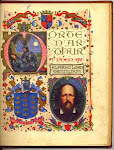







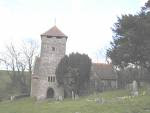
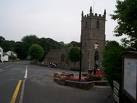


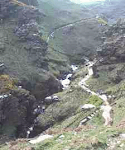

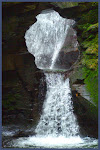


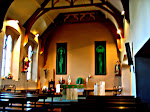









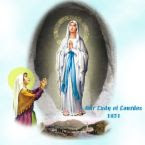


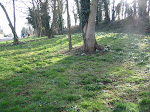

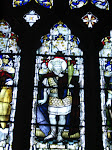
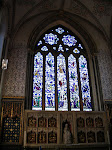
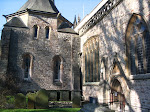
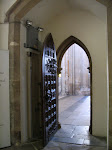
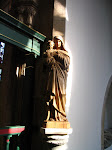


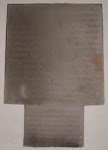



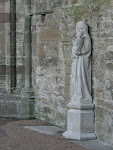









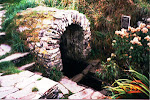


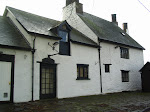
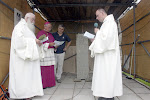



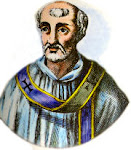
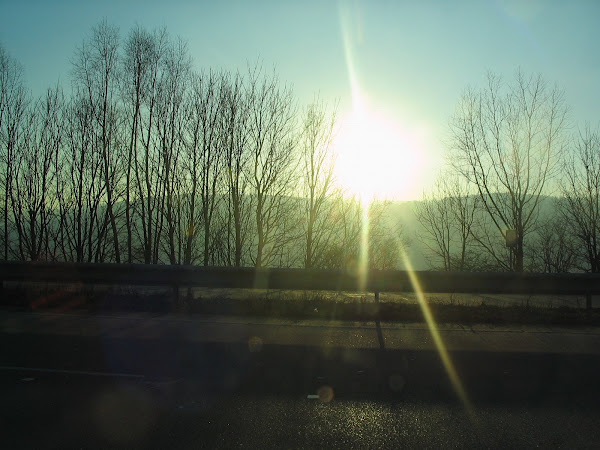


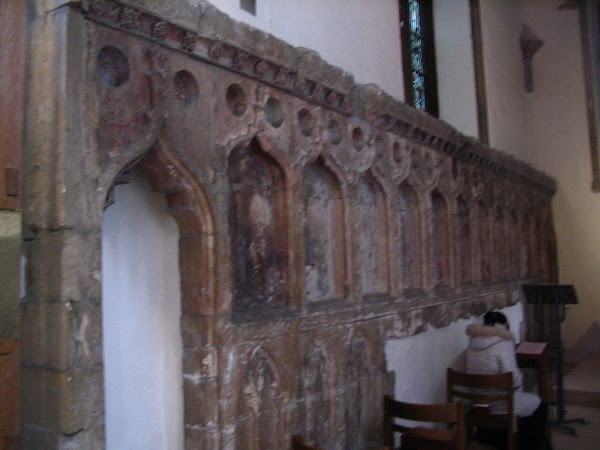
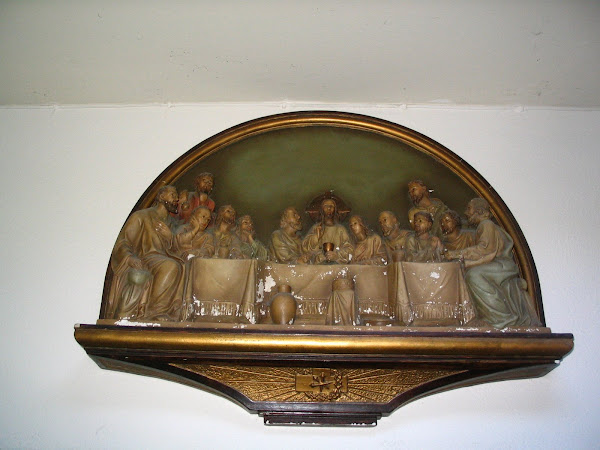




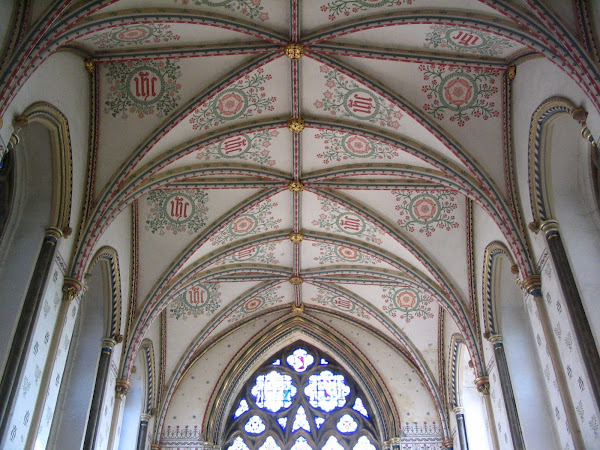


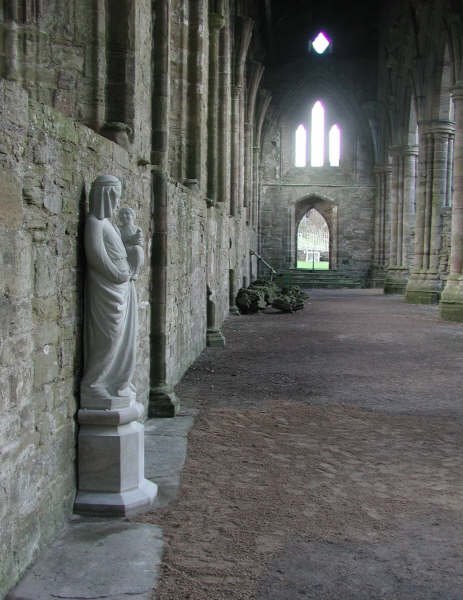
No comments:
Post a Comment